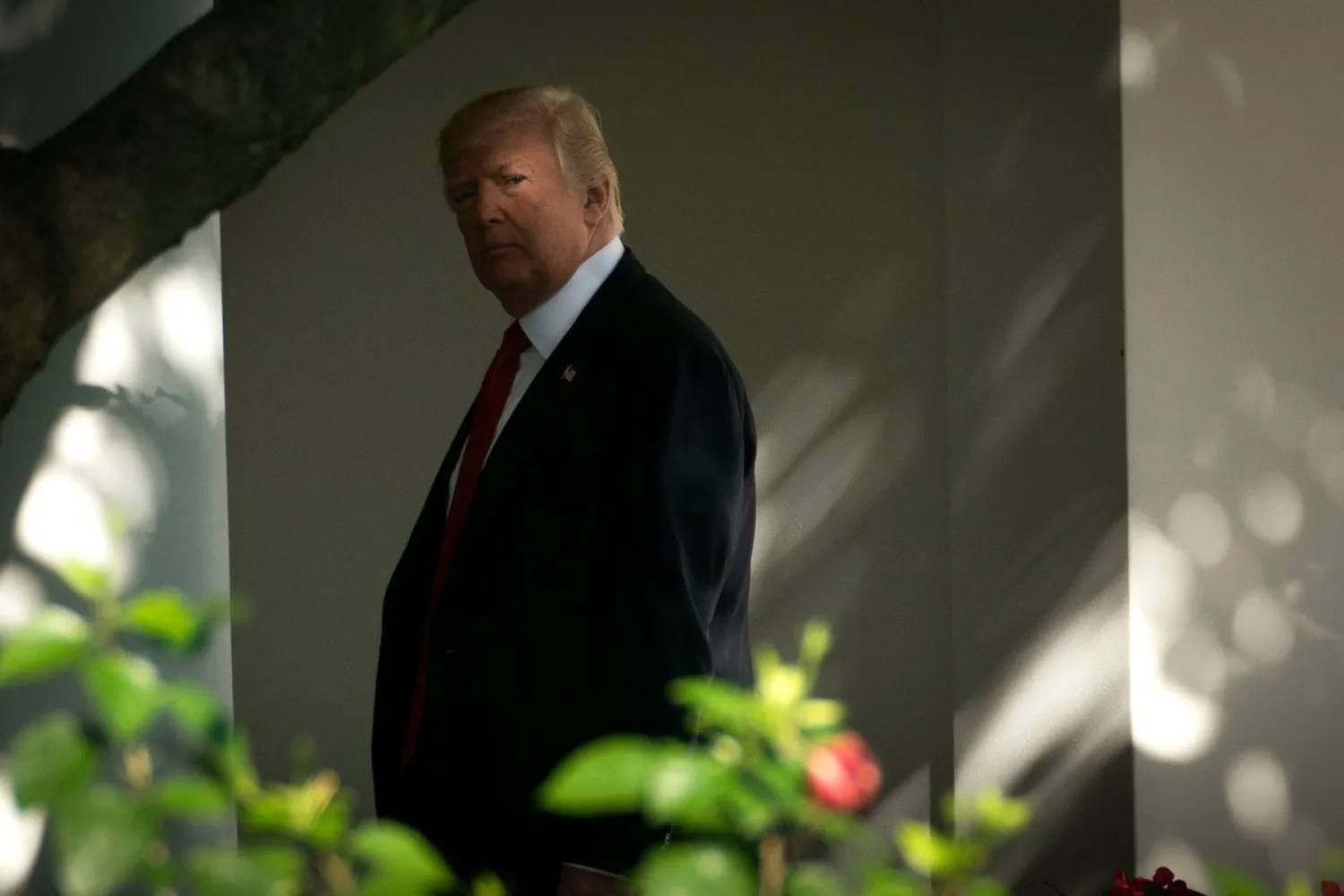Around 5:30 each morning, President Trump wakes and tunes into the television in the White House’s master bedroom. He flips to CNN for news, moves to “Fox & Friends” for comfort and messaging ideas, and sometimes watches MSNBC’s “Morning Joe” because, friends suspect, it fires him up for the day.
Trump grabs his iPhone. Sometimes he tweets while propped on his pillow, according to aides. Other times he tweets from the den next door, watching another television. Less frequently, he makes his way up the hall to the ornate Treaty Room, sometimes dressed for the day, sometimes still in night clothes, where he begins his official and unofficial calls.
As he ends his first year in office, Mr. Trump is redefining what it means to be president. He sees the highest office in the land much as he did the night of his stunning victory over Hillary Clinton — as a prize he must fight to protect every waking moment, and Twitter is his Excalibur. Despite all his bluster, he views himself less as a titan dominating the world stage than a maligned outsider engaged in a struggle to be taken seriously, according to interviews with 60 advisers, associates, friends and members of Congress.
For other presidents, every day is a test of how to lead a country, not just a faction, balancing competing interests. For Mr. Trump, every day is an hour-by-hour battle for self-preservation. He still relitigates last year’s election, convinced that the investigation by Robert S. Mueller III, the special counsel, into Russia’s interference is a plot to delegitimize him. Color-coded maps highlighting the counties he won were hung on the White House walls.
Before taking office, Mr. Trump told top aides to think of each presidential day as an episode in a television show in which he vanquishes rivals. People close to him estimate that Mr. Trump spends at least four hours a day, and sometimes as much as twice that, in front of a television, sometimes with the volume muted.
“He feels like there’s an effort to undermine his election and that collusion allegations are unfounded,” said Senator Lindsey Graham, a Republican from South Carolina who has spent more time with the president than most lawmakers. “He believes passionately that the liberal left and the media are out to destroy him. The way he got here is fighting back and counterpunching.
“The problem he’s going to face,” Mr. Graham added, “is there’s a difference between running for the office and being president. You’ve got to find that sweet spot between being a fighter and being president.”
Mr. Trump is more unpopular than any of his modern predecessors at this point in his tenure — just 32 percent approved of his performance in the latest Pew Research Center poll — yet he dominates the landscape like no other.
After months of legislative failures, Mr. Trump is on the verge of finally prevailing in his efforts to cut taxes and reverse part of his predecessor’s health care program. While much of what he has promised remains undone, he has made significant progress in his goal of rolling back business and environmental regulations. The growing economy he inherited continues to improve, and stock markets have soared to record heights. His partial travel ban on mainly Muslim countries has finally taken effect after multiple court fights.
Jared Kushner, his son-in-law and senior adviser, has told associates that Mr. Trump, deeply set in his ways at age 71, will never change. Rather, he predicted, Mr. Trump would bend, and possibly break, the office to his will.
John F. Kelly, a retired four-star general, served as a “wagon boss” for Marines crashing into Iraq in 2003, keeping his column moving forward despite incoming fire. As White House chief of staff, Mr. Kelly has adopted much the same approach, laboring 14-hour days to impose discipline on a chaotic operation — with mixed success.
In the months before Mr. Kelly took over last summer from his embattled predecessor, Reince Priebus, the Oval Office had a rush-hour feel, with a constant stream of aides and visitors stopping by to offer advice. During one April meeting with New York Times reporters, no fewer than 20 people wandered in and out. The door to the Oval Office is now mostly closed.
Mr. Kelly is trying, quietly and respectfully, to reduce the amount of free time the president has for fiery tweets by accelerating the start of his workday. Mr. Priebus also tried, with only modest success, to encourage Mr. Trump to arrive by 9 or 9:30 a.m.
Mr. Trump, who enjoyed complete control over his business empire, has made significant concessions after trying to micromanage his first months in office. Despite chafing at the limits, the president actually craves the approval of Mr. Kelly, whom he sees as a peer, people close to Mr. Trump said.
He calls Mr. Kelly up to a dozen times a day, even four or five times during dinner or a golf outing, to ask about his schedule or seek policy advice, according to people who have spoken with the president.
Mr. Kelly has also adopted some of Mr. Trump’s favorite grievances, telling the president recently that he agrees that some reporters are interested only in taking down the administration.
The ammunition for his Twitter war is television. No one touches the remote control except Mr. Trump and the technical support staff — at least that’s the rule. During meetings, the 60-inch screen mounted in the dining room may be muted, but Mr. Trump keeps an eye on scrolling headlines. What he misses he checks out later on what he calls his “Super TiVo,” a state-of-the-art system that records cable news.
Watching cable, he shares thoughts with anyone in the room, even the household staff he summons via a button for lunch or for one of the dozen Diet Cokes he consumes each day.
The New York Times














